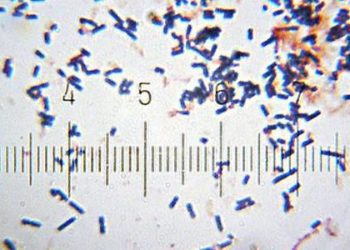Study finds variation in treatment of extremely pre-term infants among hospitals
1. There was variation in how aggressively hospitals treat infants born before 27 weeks gestation.
2. The variation in treatment contributed to differences in outcomes for these infants.
Evidence Rating Level: 2 (Good)
Study Rundown: The decision of whether to aggressively treat infants born before 27 weeks is challenging for both physicians and families. Even if a very premature infant survives with treatment, the child may be left with severe impairments and a limited quality of life. For families facing this situation, it would be helpful to know not just what the child’s chances of survival are, but also what his chances of survival without severe impairments are. However, existing data on outcomes varies widely, and some believe that this reflects variation in practice between hospitals.
This study found variations in how hospitals treat extremely pre-term infants, particularly those born at 22 and 23 weeks gestation. Most hospitals provided active treatment to infants born at 25 or 26 weeks gestation. Treatment was withheld in about 13% of cases and all of these infants passed away. When active treatment was given, 65% survived and 56% survived without severe neurodevelopmental impairment at 18 to 22 months. The study benefited from a relatively large sample size. However, the outcomes were assessed on a short time frame of just 18-22 months. The cause of variation in hospital practices was unclear and future studies are needed to further evaluate this.
Click to read the study, published today in NEJM
In-Depth [retrospective cohort]: The study involved nearly 5000 infants born between 2006 and 2011 in 24 US hospitals. All were born before 27 weeks gestation without congenital abnormalities. Rates of active treatment (that is, any potentially lifesaving treatment) were recorded as well as survival and presence of impairments at 18 to 22 months of corrected age.
The greatest variation in hospital treatment practices was found among infants born at 22 to 23 weeks of gestation. Overall, about 22% of infants born at 22 weeks were treated, with an interquartile range of 7.7% to 100%. Active treatment made the biggest difference to survival and survival without impairment for infants born at 22 and 23 weeks, and most of the between-hospital variation in outcomes for these infants was due to variations in hospital practices regarding active treatment. However, even with active treatment, survival for infants born at 22 weeks was 23% with active treatment.
Image: PD
©2015 2 Minute Medicine, Inc. All rights reserved. No works may be reproduced without expressed written consent from 2 Minute Medicine, Inc. Inquire about licensing here. No article should be construed as medical advice and is not intended as such by the authors or by 2 Minute Medicine, Inc.









